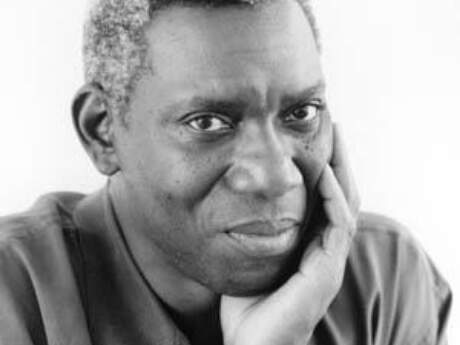Remembering Katrina
The Raft of Medusa

The Raft of the Medusa
after Théodore Géricault; aux naufragés
1. Unmooring
Step over the corpse
and onto our raft,
past the cameras
and onto the raft—
wherever you step, the raft
tilts toward you, tilts you toward
the corpse-colored sea keeling over
the sides, fumbling through the gaps,
swallowing its body back,
heaving you inward: it reeks
sliding over you, whatever you hold
to mean not-yet-drowned,
the way you know the raft
is snapped masts lashed too late,
and a mast is a stripped tree,
a big stick, so a broken mast goes
stick stick stick stick stick it clacks
sidewalk-wise across picket-fence gaps
until the raft heaves and we slide
clinging to shit-smeared slats and thighs
—oh body made stranger than water—
and you think you are home in the city
which is crowds unhoused in a Dome,
city this raft unmoored from the ship
that towed it, human weight a drag,
adrift for days past the cameras.
2. Fever
Take my hand—you've got phrenetis calenture,
heat breeds it in you sailing nowhere so long,
fever of going nowhere, it makes
a home in your head, and you're the man
who walks off the raft into waves
where he sees a street he knows,
going nowhere, there, take my hand,
you're the woman lost in a house
where the sea tossed books
and couches, where the sea broke
walls and teacups, where the sea
drowned her dog in the attic, there,
take my hand, you're almost home,
you're playing chess with a stranger
in the Dome, you excuse yourself to climb
over the railing, call "move-aside-please"
to the crowded tier below, take
my hand, before you step—
oh mirrors sick
with sludge and gasoline, faces leached
from family pictures, and a ship-like speck
that frets our horizon
flits away——
3. The Atelier
The painter arranges cadavers
he will live with in his studio;
he'll paint two rags and a stick on our horizon,
we'll wave a red bunting, stirring the air—
Stepping back into your city, wherever
you step the city tilts toward you
its corpse. Blue, clear as glass,
the sky shatters light through trees
the winds sucked and snapped, into gaps
of charred bricks where houses burned,
on the gravel-patched levee breach
where a block-long barge, unmoored
in the canal, battered as the storm surged,
battered until the waters heaved
earth and streets aside, shattered
home. Here's someone's purse, someone's
drowned book. Here's the barge,
stuck in its impersonal etc.
Oh naufragé, shipwrecked one,
friend made strange by water—
The painter takes up his brush and,
smelling dead flesh, paints it.
All rights reserved. Reprinted with the permission of the author.
After Katrina, my partner, Tim, and I, along with my father and his girlfriend, ended up in Austin, where we stayed until early December. Tim and I were lucky—neither our apartment nor Tim's business flooded—but the school where I taught wasn't open and, aside from a few friends who went back early, there wasn't really a city to return to yet. My father was not lucky: nine feet of floodwater ruined his house and studio, destroying not only decades of paintings and drawings but also documentation of his career. His loss, among Katrina's many devastations, was almost beyond my comprehension. I was a wreck, and would be for months, overwhelmed as the full scope of the calamity unfolded—the failure of the federally built and maintained levees, the government's inability to help people in desperate, immediate need. Barely able to read a book, much less write a poem, I volunteered twice a week to work with displaced New Orleans students at an Austin middle school. My father, of course, had even more reason to be overwhelmed than I did; however, within a couple of weeks he was taking a city bus to a studio at the University of Texas and making art. And not Katrina-related art, but a continuation of the work he had been steadily, thoughtfully producing for most of his life.
My father's example—his extraordinary capacity to get back to the ordinary work of making art—helped me see that to manage my obsession with the news and rumors coming through my phone and computer, I too needed to get back, if not to home, then to what made me who I was, wherever I was. I'd been keeping notes since the disaster started, and soon realized that Théodore Géricault's painting The Raft of the Medusa offered a metaphor for some of the most extreme aspects of the catastrophe, and even for how it had been represented in the media. In mid-September, the Ragdale Foundation graciously offered me a residency, which I gladly accepted. I brought with me a monograph on Géricault's painting, and left with a draft of what I thought would be my only Katrina poem. Painful to work on, it took months to finish, by which time I had returned to New Orleans and moved on from my old teaching job to a new one, and, though deeply concerned, emotionally and practically, with the city's recovery, I thought I had written my way out of that time for good.
Four years since that poem, I've written a series connecting my Katrina experience with family stories and memories, along with other poems dealing with the presence of the past, especially in our relationship to art. I'm doing research on Reconstruction history for future poems, and I'm involved in projects to help young people build a lasting artistic community. Katrina's legacy for me, then, as an artist and a citizen, has been to make me as mindful of the past as of the all too vulnerable present.


